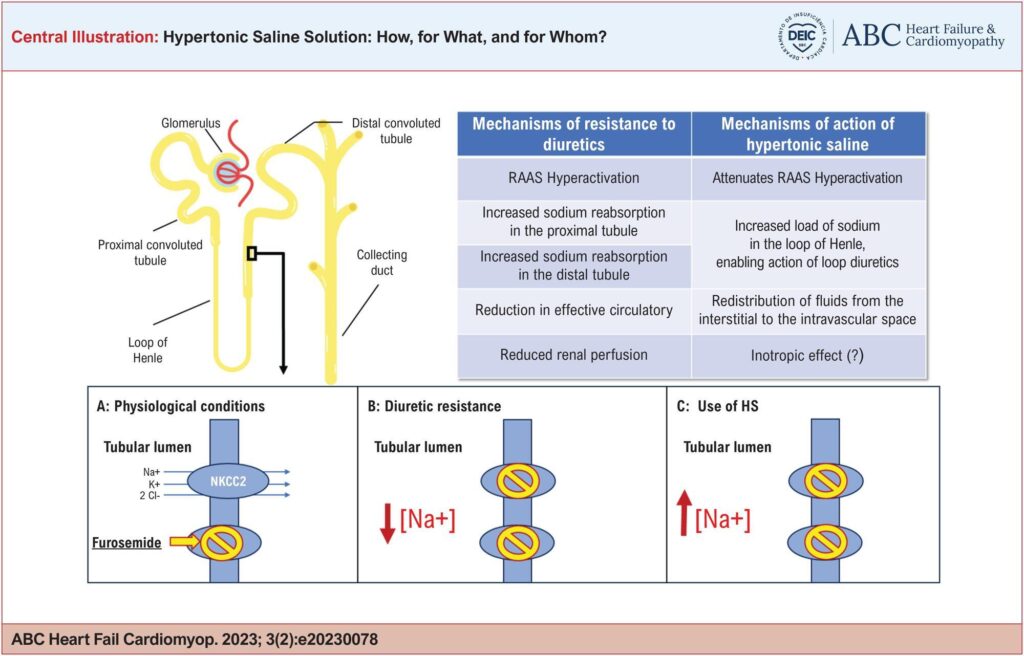ABC Heart Fail Cardiomyop 2023; 3(2): e20230078
Hypertonic Saline Solution: How, Why, and for Whom?
Abstract
The administration of hypertonic saline (HS) in decompensated heart failure (HF) seems counterintuitive, given the concept that sodium is universally harmful for these patients. However, increasingly, strict sodium restrictions have been questioned due to the lack of proven benefits. On the other hand, we know that in acute HF complicated with diuretic resistance, there is hyperactivation of the renin-angiotensin-aldosterone system (RAAS), resulting in a state of excessive increase in renal avidity for sodium, hindering the action of loop diuretics. In this sense, HS would have the potential to attenuate the hyperactivation of RAAS and provide a supply of sodium to the renal tubules, enabling the action of loop diuretics. Several studies have consistently demonstrated that the association of HS with loop diuretics results in greater diuresis, weight loss, and possibly improved renal function. Therefore, despite being underused, we believe that HS is an effective, low-cost, and widely available strategy whose mechanism of action addresses one of the central points in the pathophysiology of diuretic resistance.
Keywords: Acute Kidney Injury; Diuretics; Heart Failure; Hyponatremia
2,991


